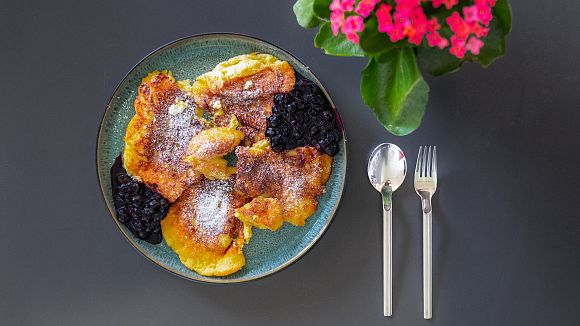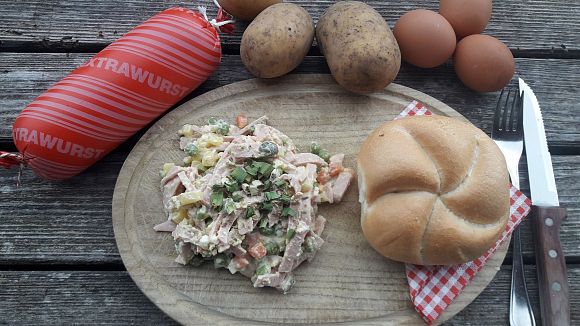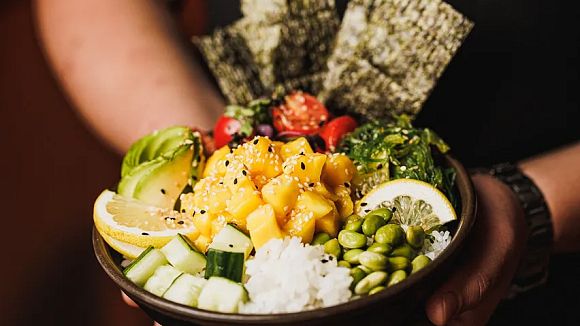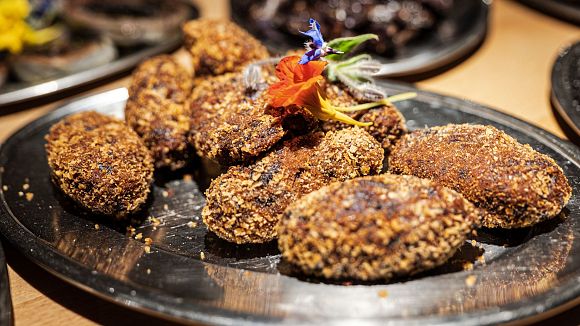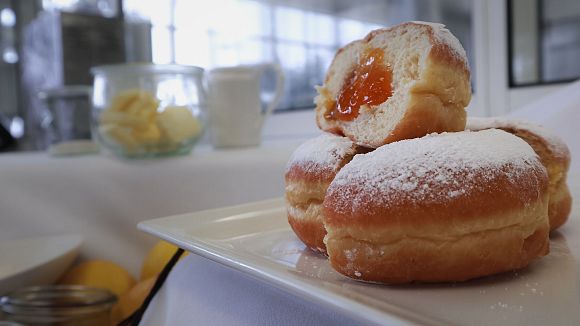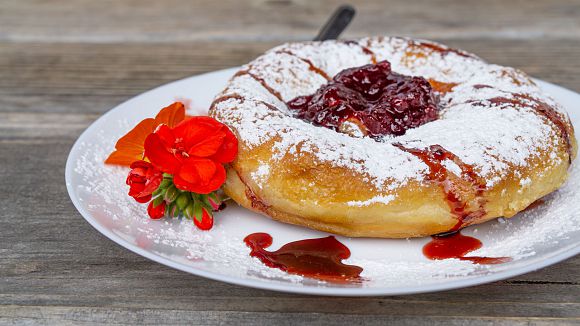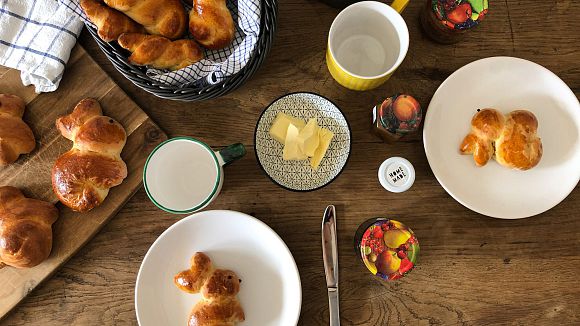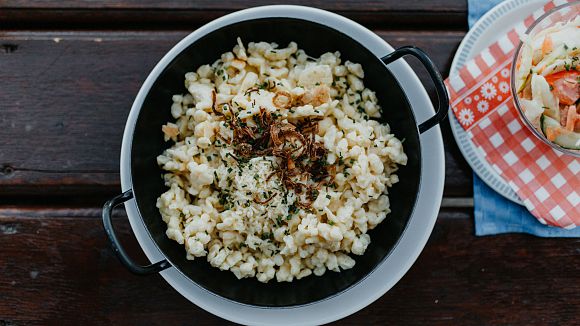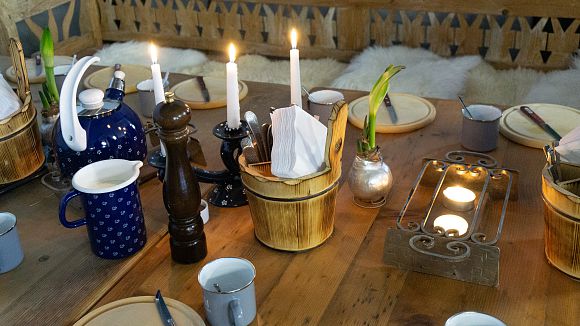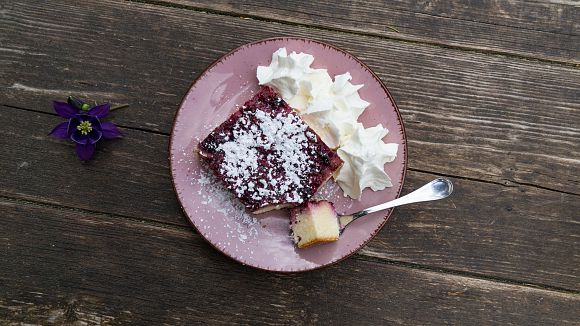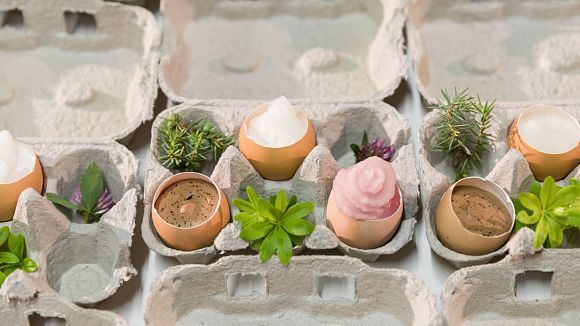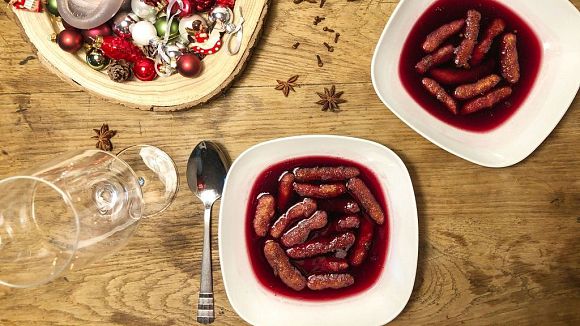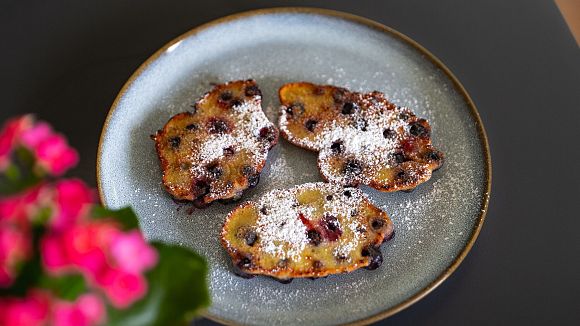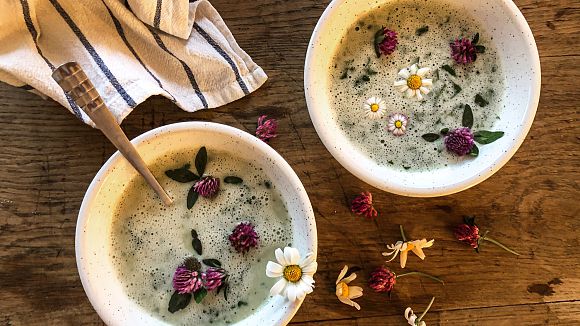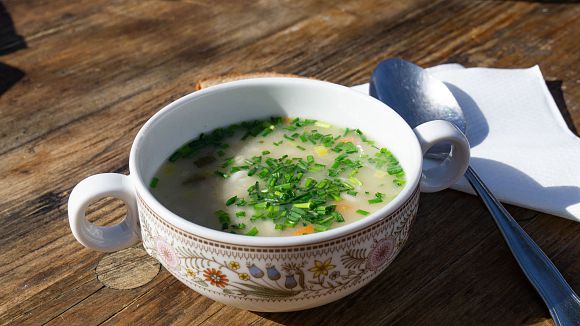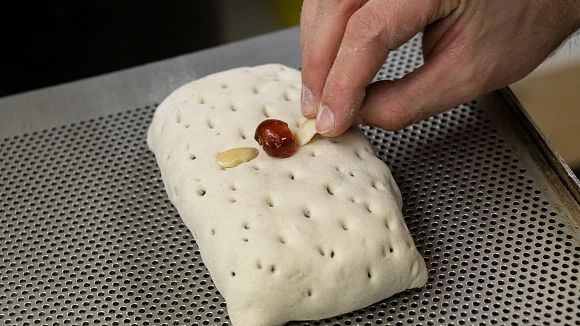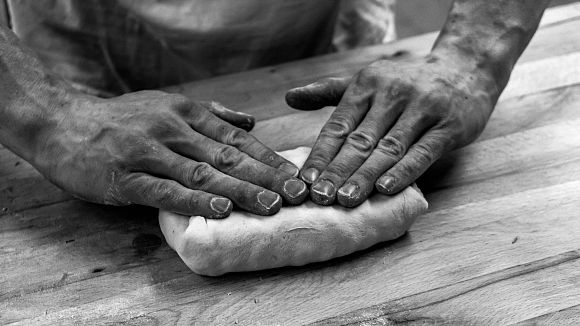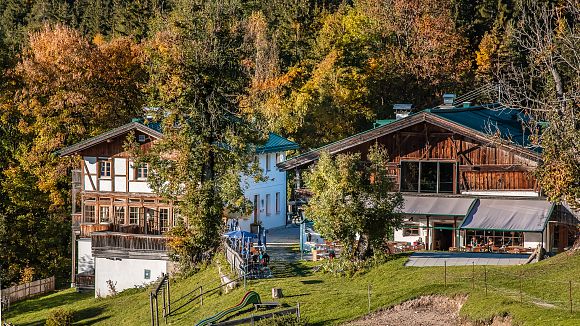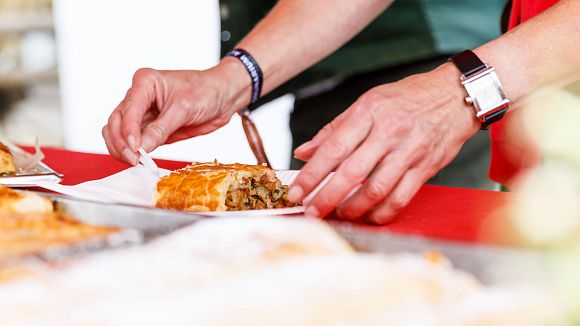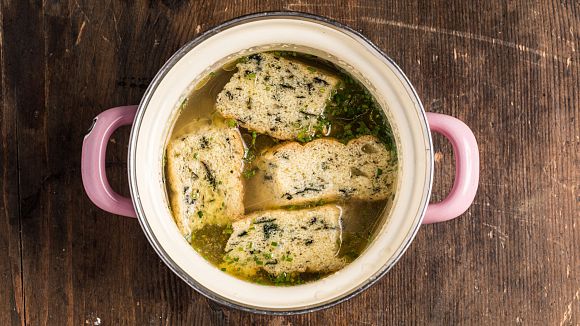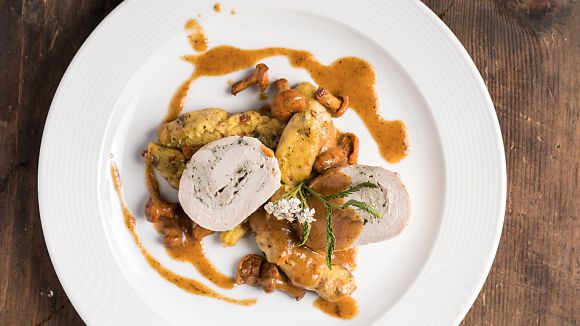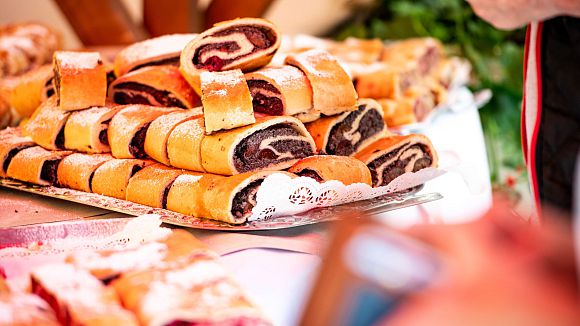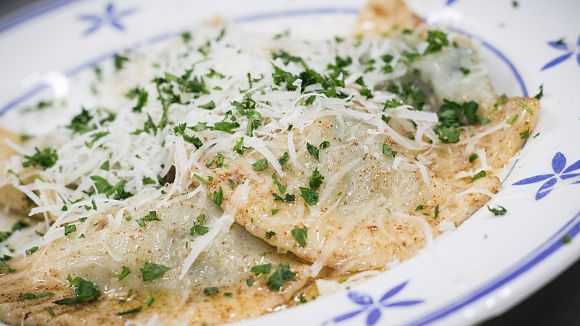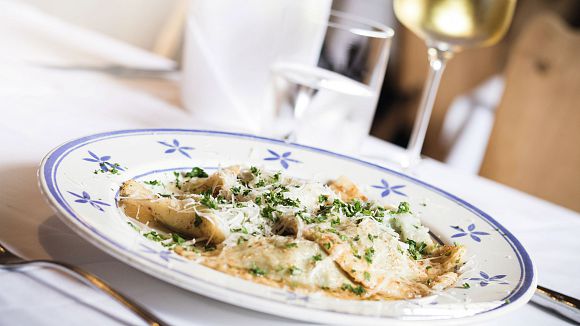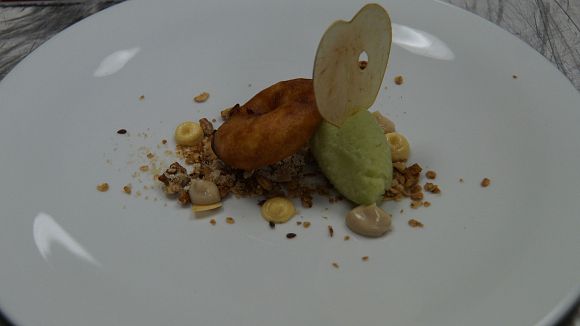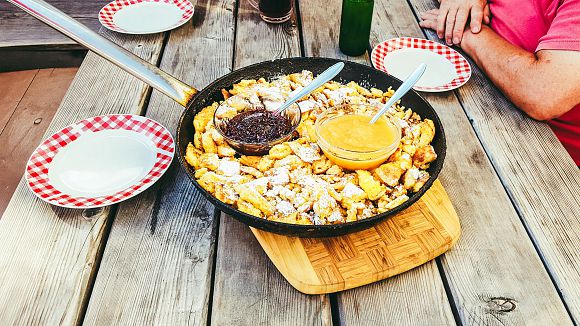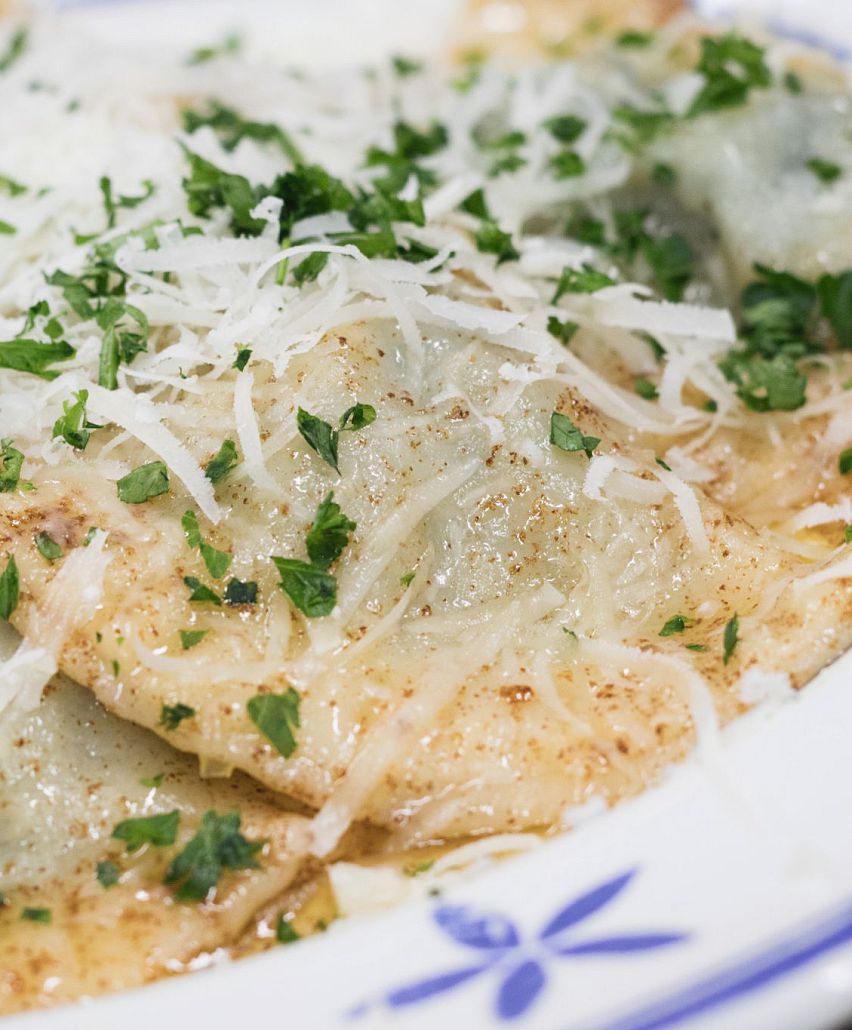
von Zeit.los Magazin
April 26, 2018
COOKING
The king of doughnuts: Schlutzkrapfen
He likes to eat them himself. If that encourages a chef to get to work, then nothing can really go wrong. Patrick Trois, head of the Dorfkrug in Mösern, makes the taste buds dance with his Schlutzkrapfen. A Tyrolean dance, of course.
Watching a master of his trade at work is always fascinating. Almost cheeky ease where the inexperienced is annoyed by his clumsiness. Elegant fluidity where the layman falters when looking at the textbook, and nimble correction where the ambitious desperately starts all over again. Every workshop has something of this magic. And if the workshop is a kitchen, then it tingles a little more. Like here, in the Dorfkrug in Mösern, where Patrick Trois is the head chef and is just about to cook a real Tyrolean specialty – Schlutzkrapfen. "It's a regional dish, easy to make and I like to eat them myself – when I've made them myself," Patrick says. The addition makes him smile, too, but he just knows what he's talking about. And what he can do.
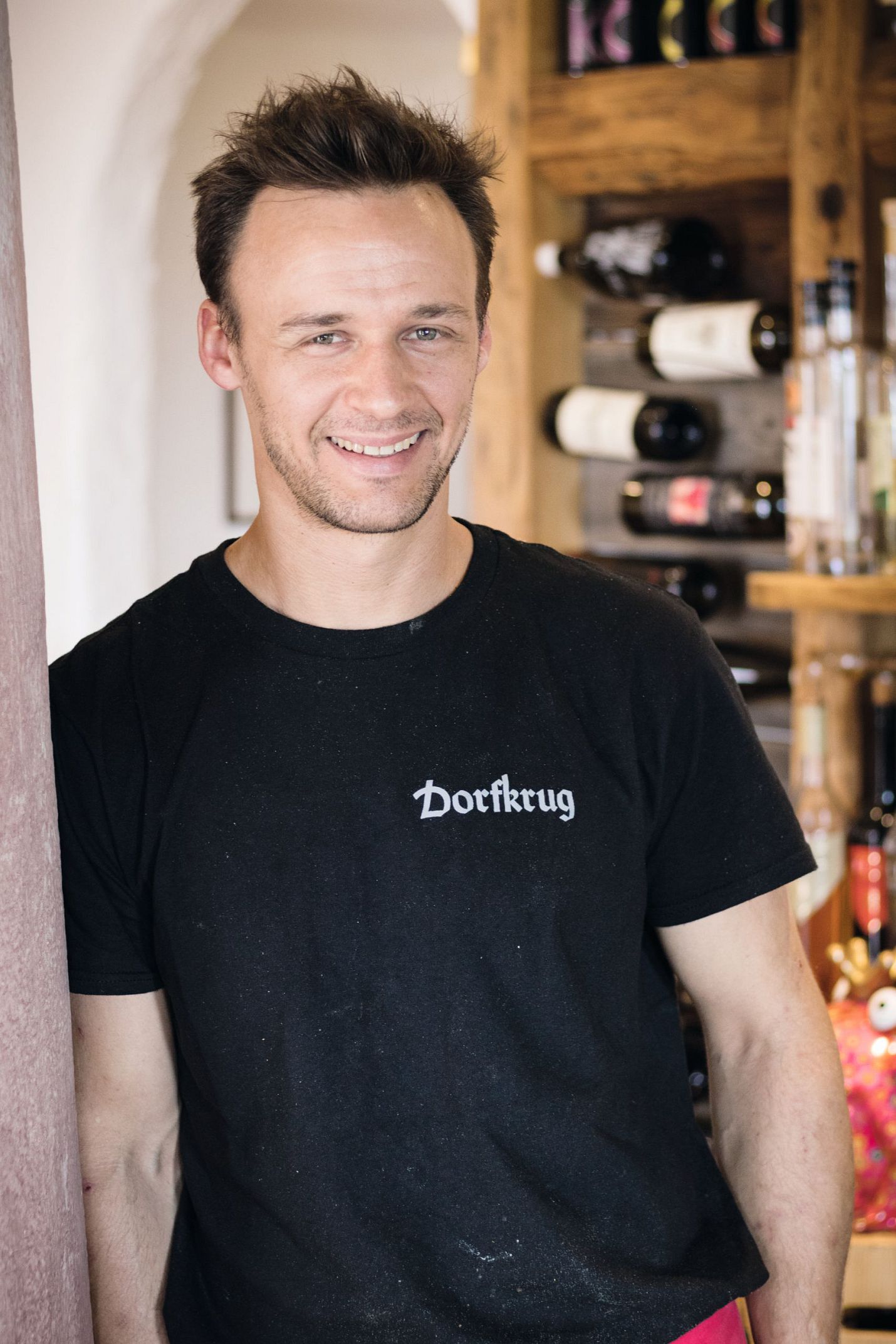
Chef of the Dorfkrug - Patrick Trois
Schlutzkrapfen: traditional variety
Schlutzkrapfen is a very appropriate name for this dish. As straightforward and also a little ruthless as the Tyroleans themselves, who obviously named these doughnuts after their slight slipperiness, which is so characteristic of them after bathing in salt water. The word Krapfen is a bit confusing, Schlutzkrapfen are related to Faschingskrapfen only in the sense that they contain a delicious filling. However, this filling is not hidden in a sweet yeast dough, but in a pasta dough. No wonder the Italians call Schlutzkrapfen "ravioli tirolesi" in reference to their own version, or more floridly – in reference to the shape – mezzelune (half moons). The Carinthians call their version "Kärntner Nudeln" and the Swabians are happy to have Maultaschen. Schlutzkrapfen, however – and in the heart of Tyrol this can be rightly and convincingly asserted with subjectivity – are the best.
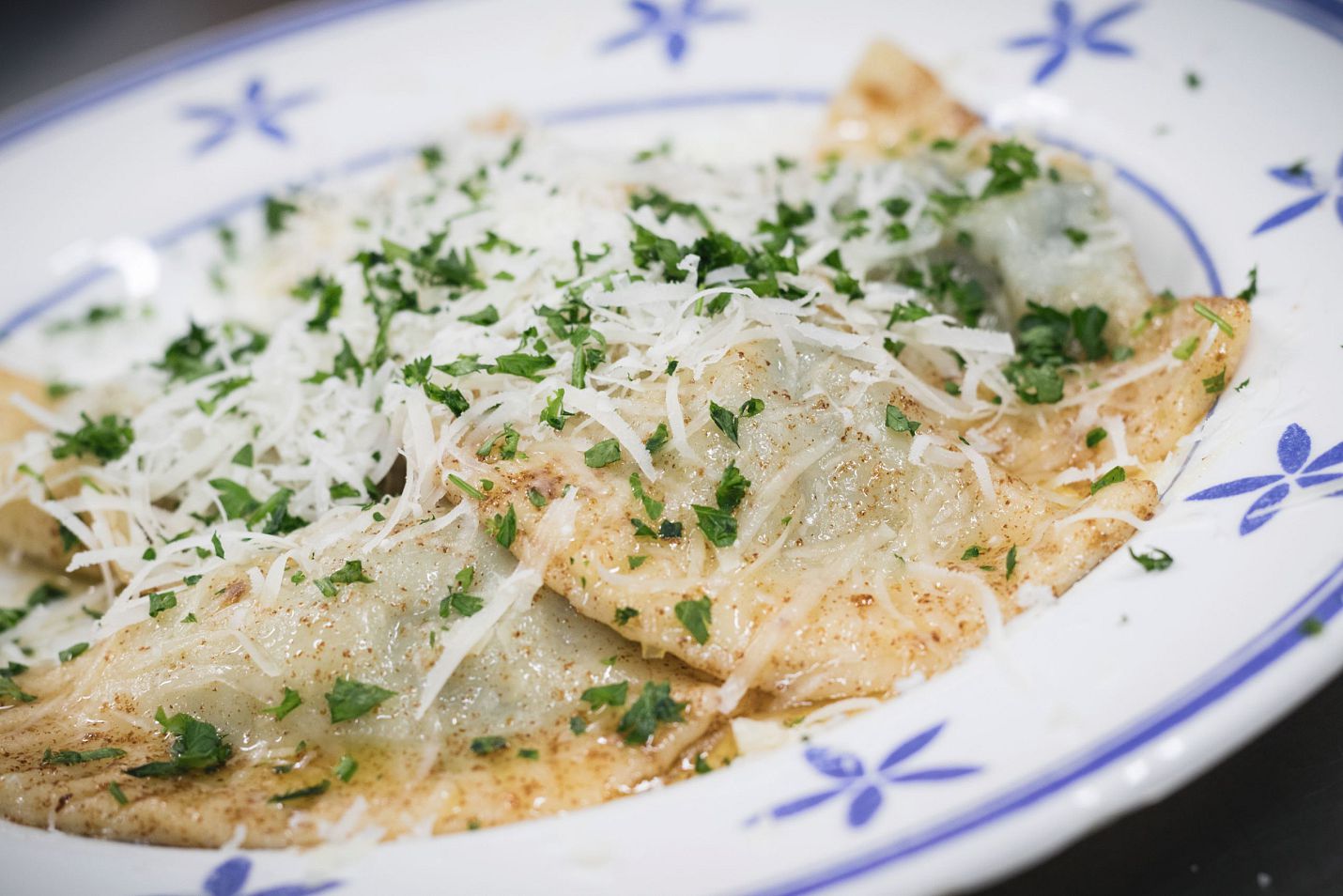
A real traditional dish - savoury Schlutzkrapfen (doughnuts)
A master at work
Patrick Trois is quickly kneading the dough. Rye flour, wheat flour, eggs, oil and salt have been "coupled" in the bowl so quickly that the ingredients themselves must have been surprised by their lightning-like transformation. "If it's not too hot, the dough can sit quietly a little longer," the chef refers to the often practical possibility of being able to prepare the dough so as to no longer have to put up with delays accompanied by family hunger pangs shortly before the dinner call. "At room temperature, the dough is best rolled out," the master still says – and is already rolling a disc from the round on the floured work surface with the pasta walker. The recently revived conspiracy theorists, who don't want to believe that the earth is a sphere, would have a field day with this.But the dough does not remain undisturbed and flat for long, as Patrick has already pulled out a cookie cutter with which he now stabs out many small discs. Because the round and the square don't really fit together except on the soccer field, the amusingly shaped pieces of dough are kneaded together again between the slices, rolled out, and again a round base is created for another Schlutzkrapfen or two. Those, perhaps, that are able to settle an argument at the dinner table afterwards that is more due to pleasure than to hunger.
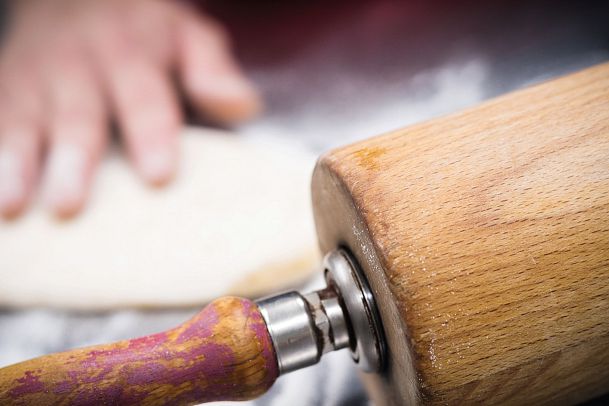
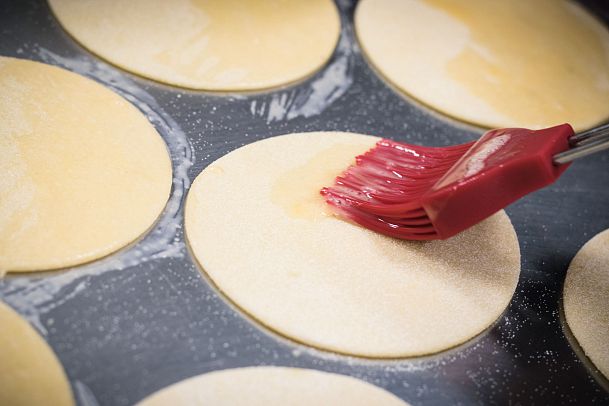
Cooking with passion
Now it is the turn of the abundance. The Dorfkrug in Mösern, respectively Patrick Trois' father Josef Trois, was a founding member of the "Culinarium Alpentraum", an all-around tasteful initiative on the Seefeld Plateau, dedicated to fine ingredients from the region, respect for the seasons and the high quality of exquisite, local cuisine. Eight "innkeepers with a passion" have sworn allegiance to this, and for the past 20 years, Alpine fare has been consistently ennobled in the Culinarium Alpentraum restaurants. This is also the background to the fact that Patrick Trois, who became head chef in 2006 and then also chef of the house in Mösern, which opened in mid-December 1986, is extremely selective in choosing his ingredients. With Schlutzkrapfen just as with all the other delicacies that the menu of the Dorfkrug promises.
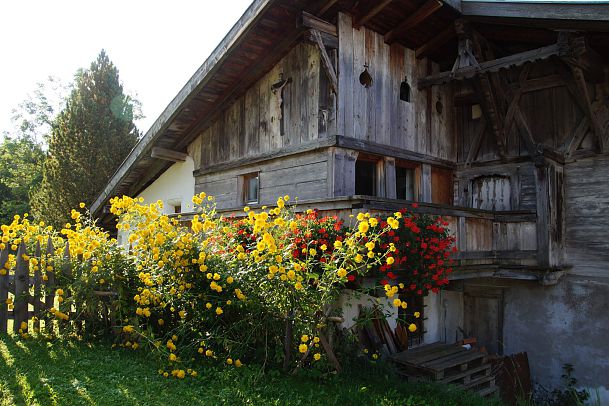

Abundance in abundance
Again, his own preference is the standard – for the flavor of the richness that goes into the Schlutzkrapfen. "For me, spinach is my favorite. You can also use pumpkin, of course, or mushrooms or meat – depending on your taste and the season. Spinach always works," he says. If you want something really hearty, you can also prepare a stuffing of gray hazelnuts. There is no shortage of variations. But Patrick likes spinach, so he chops the onion into small pieces, roasts it in butter until golden brown, and then mixes in the spinach, salt, pepper, nutmeg, and grated mountain cheese.
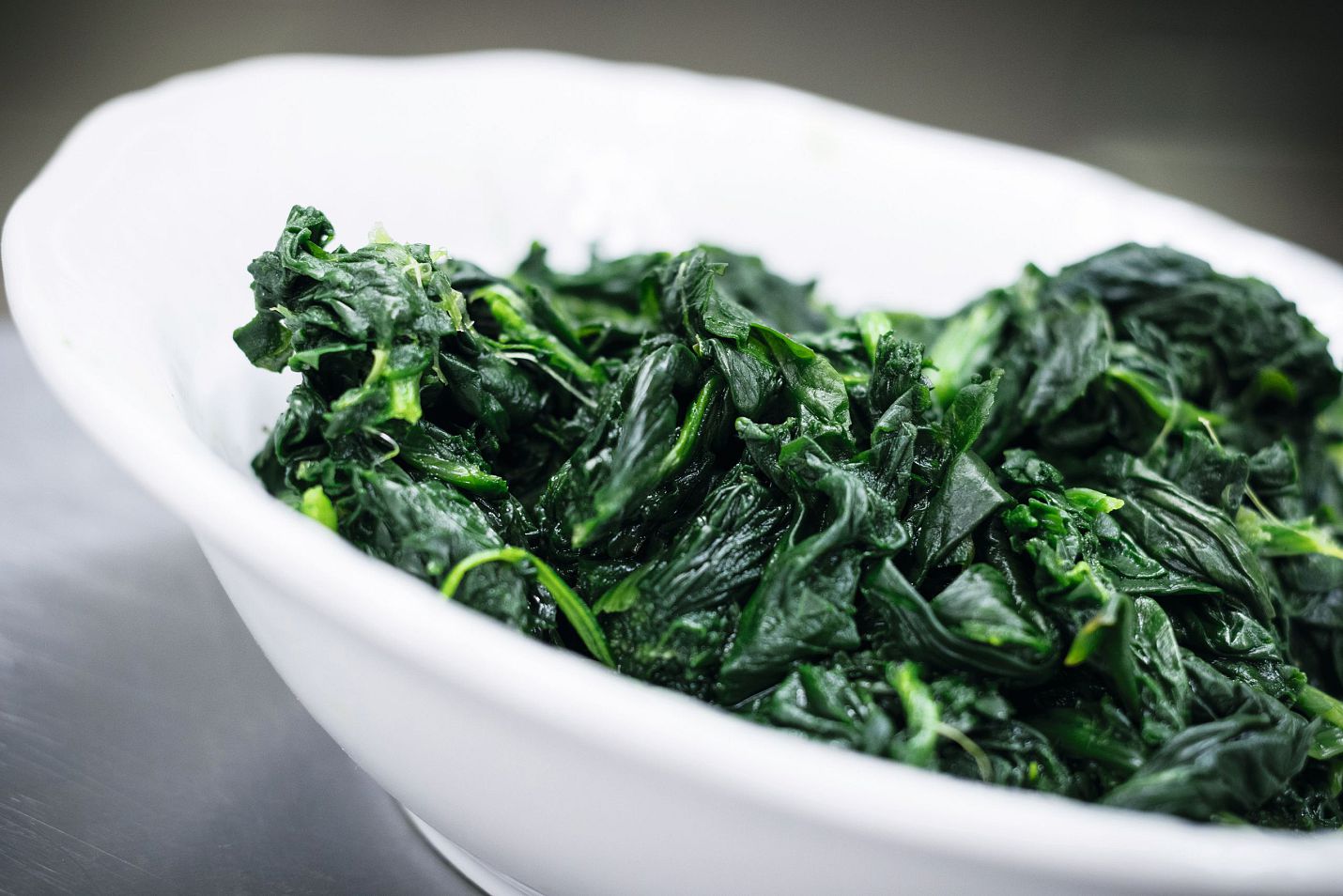
Stuffing preparation
He now blots this already promising mass onto the round slices, brushes their edges with egg, folds them shut and presses the edges tight with a fork. Half moons they are, the Italians are already right. "You can also freeze them very well," stops Patrick shortly after this step with a hint that makes it clear that it is definitely worthwhile to "produce" larger quantities, so as not to be embarrassed by attacks of violent Schlutzkrapfenlust.
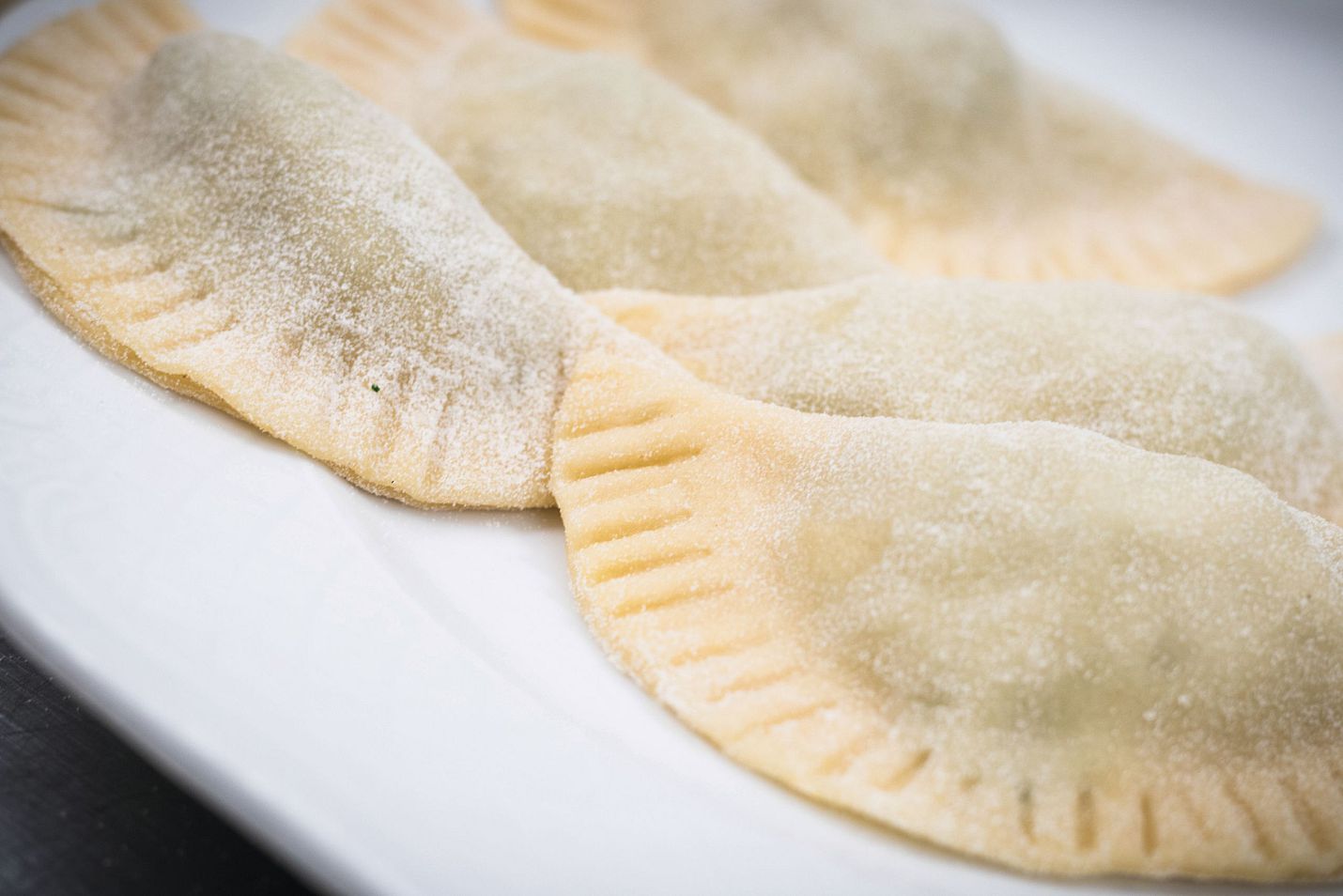
Preparation of the Schlutzkrapfen
Nothing works without family
By the way, Patrick took a little detour before discovering the kitchen as his world: "I went to HAK for two years. But sitting down and studying wasn't my thing. Then I learned to be a cook, just like Dad. It's in our blood." While he tells us that his parents still enjoy helping out, Edith Trois comes into the kitchen and, with the circumspect hospitality so characteristic of passionate innkeepers, checks that everything is going well. It does, the salt water in the large pot has long since begun to surge and the Schlutzkrapfen hug heatedly. Patrick is not paying attention to this at the moment, but is making sure that a generous piece of butter is slowly browning in a pan. Now the moment is approaching that explains the name. The doughnuts' bath is over. With a slotted spoon, the chef gently lifts them out – the tact is quite appropriate, since the external consistency of the crescents is just as they are called – "sloppy" or slippery, which could lead to a sloppy doughnut making itself independent if moved hastily. Partrick isn't having that happen. "I'm going to toast them a bit in the butter," he explains. Promising, isn't it?
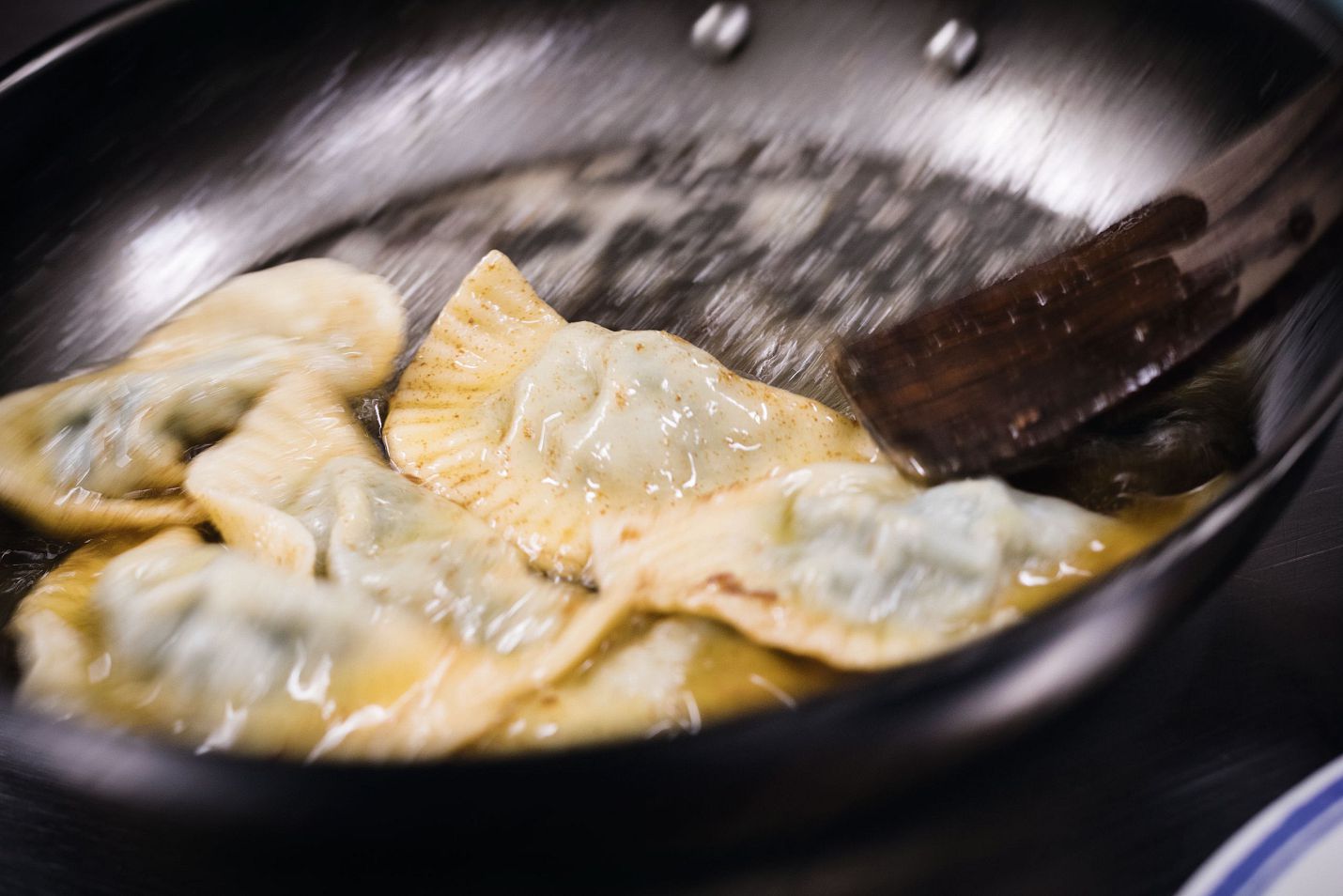
Sautéing the Schlutzkrapfen
The dance of the taste buds
The taste buds slowly begin to dance as the eyes and nose relay the stimuli, sending the whole body into a state of joyful anticipation. Out of the pan, up onto the plates, grated cheese, the rest of the butter on top – and the first morsel of Schlutzkrapfen into the mouth. Now they are dancing, the buds. A Tyrolean dance, of course.
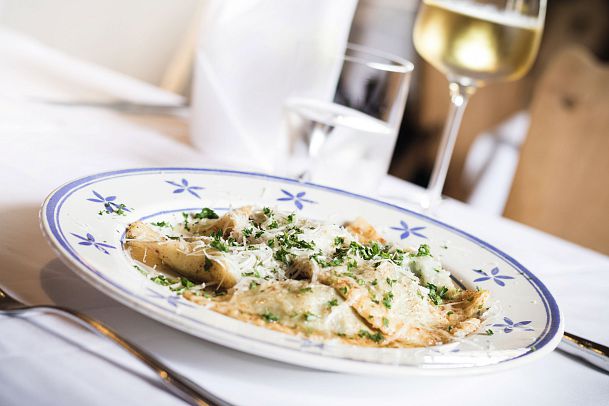
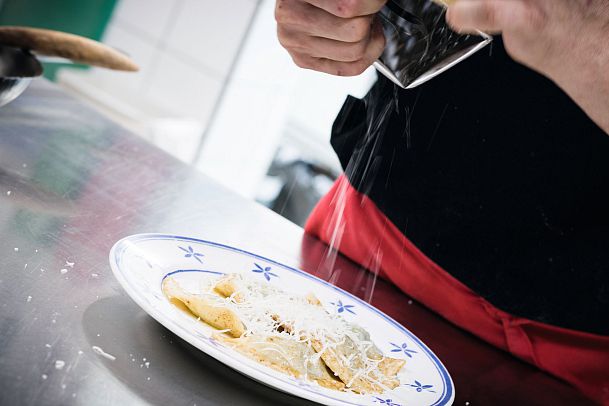
If your mouth is watering now and you absolutely want to taste Schlutzkrapfen, you can either do so at the Dorfkrug Mösern – or simply cook them yourself! The recipe à la Patrick Trois we publish shortly on the blog in our Kochstube.
We wish you much fun while enjoying!
Blog Tags
Share
